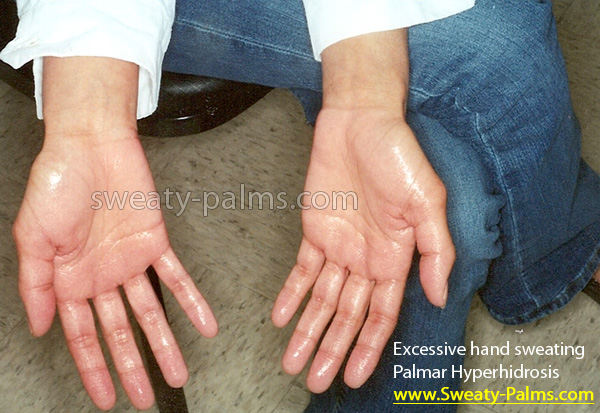How to Stop Sweaty Hands and Feet: Top Dermatology Treatments for Excessive Sweating
How to Stop Sweaty Hands and Feet: Top Dermatology Treatments for Excessive Sweating
Blog Article
Understanding the Source of Excessive Sweating and Its Impact on Day-to-day Live
While it is typically understood as a physiological feedback to control body temperature, the triggers for excessive sweating can differ extensively amongst individuals, incorporating not just physical factors but likewise emotional and psychological aspects. By diving into the origin triggers of hyperhidrosis and discovering its diverse results, a deeper understanding of this prevalent problem can be gotten, shedding light on the intricacies that people grappling with excessive sweating browse on a day-to-day basis.
Physiology of Sweat Glands
The law of sweat manufacturing, an essential physical procedure, is mostly controlled by the task of sweat glands dispersed throughout the human body. Gland are categorized into two major types: eccrine and apocrine glands. Eccrine glands are one of the most various and are found in nearly all locations of the body. They play an important function in thermoregulation by secreting a watery fluid onto the skin's surface area, which helps and vaporizes cool down the body down. In contrast, apocrine glands are concentrated in locations abundant in hair roots, such as the underarms and groin, and their secretions are thicker and milky in appearance.
When the body temperature level increases, either due to exercise, high temperature levels, or emotional stress and anxiety, the nerves sets off the sweat glands to create sweat. This sweat is made up mostly of water and electrolytes like salt and chloride. The procedure of sweat manufacturing is necessary for preserving the body's inner temperature level within a slim, optimal array, highlighting the critical role sweat glands play in human physiology.
Triggers for Excessive Sweating
In comprehending the root triggers of excessive sweating, it is critical to recognize the triggers that can lead to this physical reaction. Physical effort, high temperatures, and spicy foods are also understood to cause excessive sweating in people prone to this condition.
Furthermore, drugs such as some antidepressants, opioids, and particular supplements can additionally serve as triggers for hyperhidrosis. Comprehending these triggers is necessary in managing excessive sweating successfully - Treatment for hyperhydrosis of hands. By identifying and resolving the particular triggers that prompt extreme sweating in a specific, medical care service providers can establish customized treatment strategies to reduce this problem and improve the individual's quality of life
Medical Conditions Associated
Associated with too much sweating are different medical problems that can intensify this physical reaction. One common condition is hyperhidrosis, a condition identified by unusually increased sweating that exceeds the body's thermoregulatory requirements. This can show up in focal locations like the hands, soles, underarms, or face, affecting an individual's top quality of life because of social shame and discomfort.
In addition, endocrine disorders such as hyperthyroidism, diabetes mellitus, and menopausal warm flashes can also lead to extreme sweating. Hyperthyroidism creates an overflow of thyroid hormonal agents, speeding up metabolic process and causing more tips here sweating.
Additionally, infections like tuberculosis, HIV, and endocarditis have been connected with night sweats, an usual signs and symptom known to interfere with sleep and influence overall health. These clinical conditions highlight the varied range of underlying factors that can add to too much sweating, requiring complete examination and administration by healthcare experts.
Psychological and Psychological Aspects

Influence On Social Interactions
Excessive sweating can have extensive impacts on a person's ability to involve pleasantly in social communications. The noticeable indications of sweat discolorations or damp spots on clothing can lead to humiliation and self-consciousness, creating individuals to withdraw from social circumstances. This withdrawal can affect relationships, limit social activities, and prevent personal and professional growth.

Additionally, the anxiety and self-confidence issues coming from excessive sweating can affect interaction and interpersonal abilities. Individuals may struggle to concentrate on conversations, take part in group tasks, read more or express themselves with confidence. This can lead to sensations of seclusion and isolation, as social links become challenging to keep.
Conclusion

While it is frequently comprehended as a physical reaction to manage body temperature level, the triggers for too much sweating can differ widely amongst individuals, encompassing not just physical aspects however also psychological and mental elements. By diving into the origin creates of hyperhidrosis and discovering its multifaceted impacts, a much deeper understanding of this pervasive concern can be obtained, dropping light on the complexities that people grappling with excessive sweating navigate on an everyday basis.
Physical effort, high temperatures, and spicy foods are additionally understood to cause extreme sweating in people prone to this condition. By recognizing and attending to the particular triggers that trigger excessive sweating in an individual, health care suppliers can establish individualized therapy strategies to ease this condition and boost the person's top quality of life.
Excessive sweating can have profound effects on an individual's capacity to engage easily in social communications.
Report this page